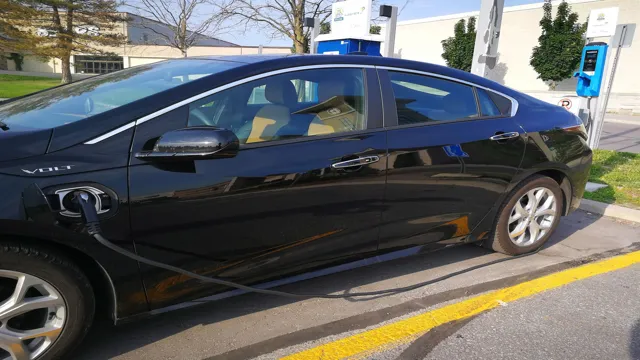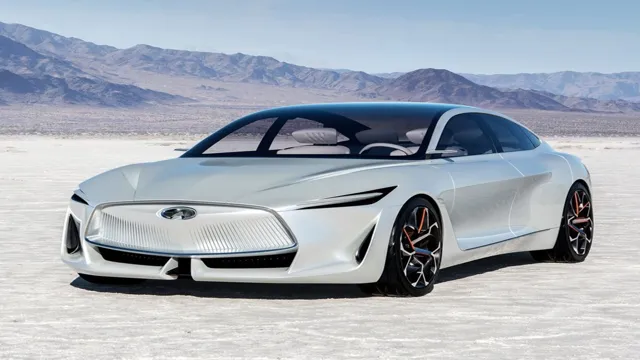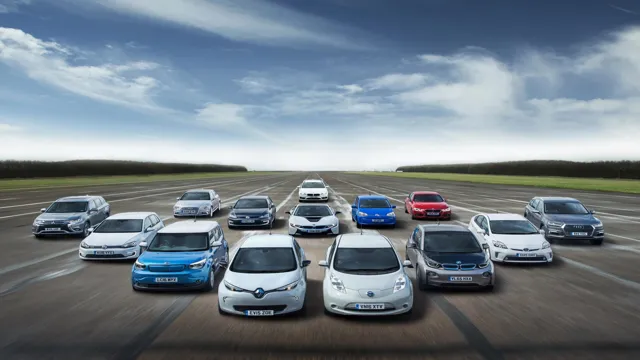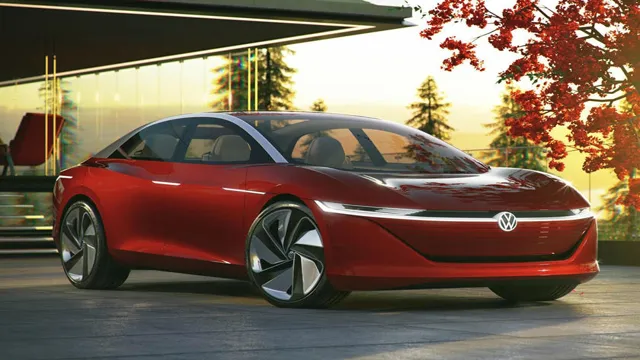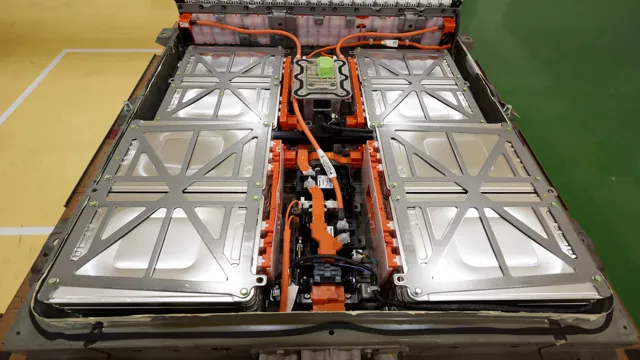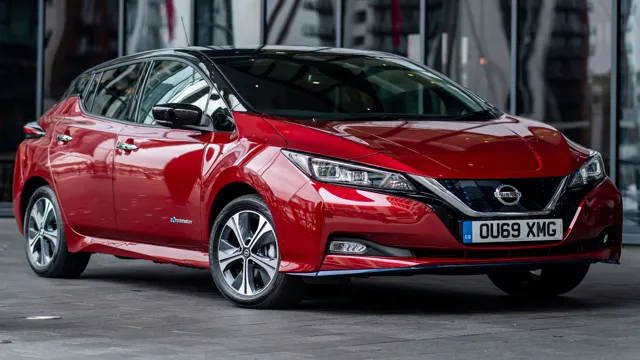Electric Cars Get a Boost: The Impact of Tax Reform on Rebates and Incentives
Are you a fan of electric cars? Do you want to stay up-to-date on the latest news regarding rebates and tax reform? Well, you’ve come to the right place. In recent months, there has been a flurry of activity surrounding electric car incentives, with several states offering rebates to encourage residents to make the switch. Additionally, there have been discussions about potential tax reform at the federal level that could impact the electric car market.
For example, California recently announced that it would be expanding eligibility for its Clean Vehicle Rebate Project (CVRP), which provides rebates for zero-emission vehicles. Low-income drivers will now be eligible for an additional $2,000 in rebates, on top of the state’s existing $2,500 rebate. Meanwhile, other states such as New York and Massachusetts are offering similar incentives to encourage electric car adoption.
At the federal level, there have been discussions about reforming the electric vehicle (EV) tax credit, which provides a $7,500 credit to buyers of new electric cars. Some proposals suggest increasing the cap on the number of credits available per manufacturer, while others argue for eliminating the credit altogether. How these changes would impact the electric car market remains to be seen, but it’s clear that policymakers are paying close attention to this area.
Whether you’re a current electric car owner or just interested in the future of green transportation, keeping tabs on rebates and tax reform is key. With more and more states and countries setting ambitious goals for reducing emissions, it’s likely that incentives for electric cars will only continue to grow. So stay tuned for the latest news and updates, and get ready to hit the road in your electric vehicle.
Electric car sales rise
In recent news, electric car sales have been on the rise thanks to new government incentives such as rebates and tax reform. With the increasing focus on reducing carbon emissions and promoting sustainable living, it’s no surprise that more people are turning to electric vehicles. The added benefits of lower fuel costs and reduced maintenance only sweeten the deal.
As governments continue to invest in the electric car industry, we can expect to see even more growth and innovation in this area. If you’re considering purchasing an electric car, now is a great time to take advantage of these incentives and join the movement towards a cleaner future.
Data on increasing electric car sales and market share
Electric car sales are on the rise, with an increasing number of consumers opting for eco-friendly vehicles. According to recent data, electric car sales have seen a significant increase in the past few years, with market share also on the rise. This shift in consumer behavior can be attributed to several factors, including lower costs of electric vehicles, improved technology, and growing environmental awareness.
Electric cars offer many benefits, including reduced air pollution and lower running costs, making them an attractive option for many people looking to reduce their carbon footprint. With more and more governments pushing for the adoption of eco-friendly vehicles, it is clear that the future of the automotive industry lies in electric cars. As we continue to see advancements in electric car technology and infrastructure, it is likely that we will see even more growth in the electric car market in the years to come.
Tax reform and electric vehicles
It’s been recently reported that tax reform could affect electric vehicle rebates. Under the current system, individuals can receive up to $7,500 in federal tax credits for the purchase of an electric car. However, the proposed tax reform could eliminate or reduce these incentives.
This news is a disappointment for many electric vehicle drivers and supporters who have been looking forward to more widespread adoption of these eco-friendly cars. Electric vehicle manufacturers, such as Tesla and General Motors, have been lobbying legislators to keep the tax incentives in place as they believe they are crucial to promoting electric cars and reducing carbon emissions in transportation. It remains to be seen what the future holds for electric vehicle rebates, but one thing is clear – the tax reform debate is far from over, and the impact on the electric vehicle industry could be significant.
Details on federal tax credit for electric car purchases
If you’re considering purchasing an electric vehicle, you might be wondering if you’re still eligible for federal tax credits under the new tax reform laws. The good news is that the federal government still offers tax credits for those who purchase qualifying electric vehicles. However, there are some changes to the calculations under the new tax law.
The tax credit starts at $2,500 for each electric vehicle purchased, and then the credit amount is increased based on the capacity of the battery. Keep in mind that the tax credit begins to phase out after the manufacturer sells 200,000 electric vehicles. If you’re in the market for an electric car, now might be the perfect time to take advantage of the federal tax credit and save some money while also reducing your carbon footprint.
Comparison of state-level incentives for EV ownership
Tax reform and electric vehicles can be a great match, as many state-level incentives encourage EV ownership by offering tax credits and other benefits. For example, in California, EV owners can benefit from rebates of up to $4,500, depending on the vehicle’s battery capacity. Meanwhile, Colorado offers a tax credit of up to $4,000, while New Jersey offers rebates of up to $5,000.
These incentives can go a long way to offset the higher initial cost of an EV, making them much more accessible and desirable to a wider range of consumers. However, it’s important to note that not all states offer incentives, and even those that do may have different criteria or limitations. Overall, tax reform has the potential to encourage the growth of the EV market by incentivizing consumers to make the switch to a more sustainable mode of transportation.
Environmental impact
Great news for environmentally conscious car buyers! The federal government has announced a new electric car rebate in its recent tax reform package. The rebate is available for eligible electric vehicles and can range from a few thousand dollars to as much as $10,000 depending on the make and model of the EV. The initiative aims to boost sales of electric cars, with the goal of replacing gas-powered cars and reducing carbon emissions.
This is a significant step forward for the environment as EVs have a much lower environmental impact than their gas-guzzling counterparts. With the new rebate in place, it’s now even more financially feasible for consumers to make the switch to electric cars. So if you’ve been on the fence about whether to go electric or not, now might be the perfect time to make the switch and take advantage of this great incentive.
Benefits of electric cars for reducing carbon emissions
Electric cars have a significant impact on reducing carbon emissions and mitigating the effects of climate change. These cars rely entirely on electricity to operate, and therefore, they produce no emissions during the driving process. Unlike traditional gasoline-powered vehicles, electric cars rely on rechargeable batteries, which can be charged using renewable energy sources such as wind or solar power.
These cars help to reduce the amount of pollution emitted into the atmosphere, contributing to a cleaner and healthier environment. Electric cars also help to reduce noise pollution, which is an added bonus for urban areas. The environmental benefits of electric cars are undeniable, and they offer a sustainable solution to reduce our carbon footprint and help to preserve the planet for future generations.
By driving an electric car, we can take an active role in protecting the environment and creating a more sustainable future.
Potential for further environmental policy reform
The potential for further environmental policy reform is necessary given the impact of human activity on the environment. It is clear that our current practices are leading to negative consequences such as climate change, deforestation, and loss of biodiversity. Environmental policy reform must address these issues and prioritize the well-being of the planet.
This means implementing policies that promote sustainability, reduce greenhouse gas emissions, and protect natural resources. By taking proactive steps towards protecting the environment, we can ensure a healthy planet for future generations. It is our responsibility to make these changes, and the potential for policy reform presents a glimmer of hope for a more sustainable future.
Let’s embrace this opportunity and work towards a brighter tomorrow, one that seeks to restore and preserve the environment, rather than exploiting it for our own gain.
Conclusion
In conclusion, the electric car rebate tax reform is electrifying news for eco-friendly car enthusiasts! Not only will this incentivize more people to switch to sustainable transportation options, but it also highlights the importance of tax policy in incentivizing positive environmental behaviors. So let’s charge up our cars and keep making strides towards a cleaner, greener future!”
Summary of electric car rebate and tax reform news
The push for electric cars has become stronger in recent years due to the positive impact on the environment. As governments and organizations continue to incentivize the purchase of electric vehicles through rebates and tax reforms, more people are switching to greener options. The environmental impact of driving an electric car is significant because they emit no greenhouse gases, reduce air pollution, and have a lower carbon footprint.
However, there remains a need for better infrastructure to support the widespread adoption of electric cars. Fortunately, with the continued investment and interest in electric cars, this issue will likely be addressed in the coming years. Overall, the shift towards electric cars is beneficial for the environment and will contribute to a healthier planet for future generations.
Implications for the future of electric car ownership
As electric cars continue to gain popularity, their impact on the environment is a major consideration for the future of car ownership. One of the biggest advantages of electric vehicles is that they emit fewer greenhouse gases and pollutants compared to traditional gasoline-powered cars. However, the overall environmental impact of electric cars depends on how they are powered.
If they are powered using renewable energy sources such as solar and wind, they have a very low carbon footprint. On the other hand, if they rely on energy produced by burning fossil fuels, their environmental benefits are significantly reduced. Therefore, the future of electric car ownership lies in increasing the use of renewable energy sources to power them.
This not only reduces the environmental impact but also makes electric cars an even more attractive option in terms of both cost and performance. By switching to renewable energy sources, we can ensure a sustainable future for both the electric car industry and the planet.
FAQs
How does the recent tax reform affect the electric car rebate?
The tax reform scrapped the $7,500 federal tax credit for electric cars, resulting in a setback for the electric car industry and consumers.
Are all electric cars eligible for rebates?
No, rebates vary by state and by manufacturer. Some states have specific requirements for the car to be eligible for the rebate.
Can I claim both state and federal rebates for my electric car purchase?
Yes, you can usually claim both state and federal rebates, but be sure to check the terms and conditions of each program.
How can I apply for an electric car rebate?
The application process varies by state and by manufacturer. Check the website of your state’s department of motor vehicles or the website of the manufacturer to learn more.

